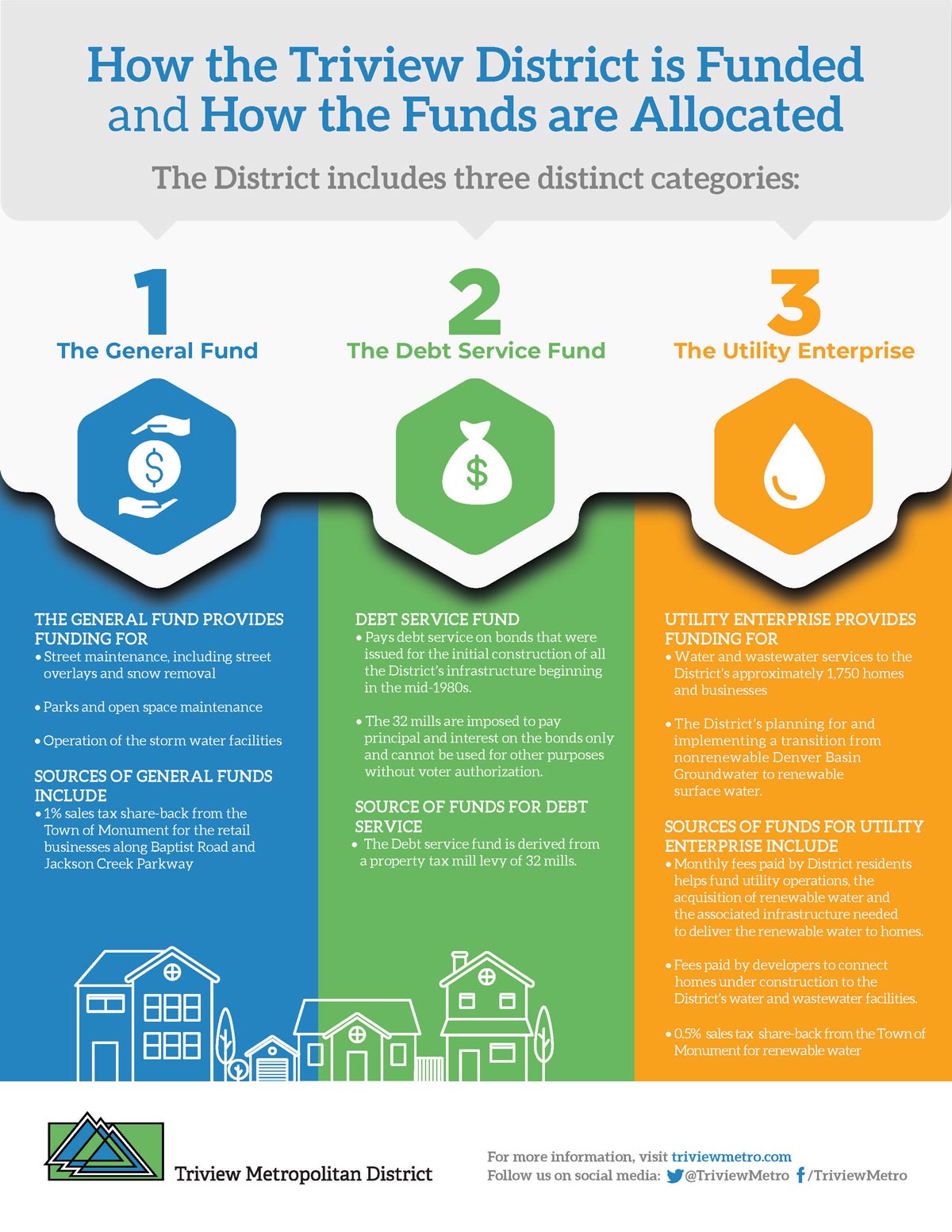Triview Newsletter – February 2020
2019 Year in Review
The Triview Metropolitan District is a terrific place to live and work, and part of that is due to all of the people working hard behind the scenes to keep things running smoothly and efficiently.
Whether it is the Triview Board of Directors and staff managing our administration, our 10 parks, our 45 acres of open space, our miles of newly overlayed streets, or residents helping bring a sense of community to our area, Triview has developed a reputation as a wonderful place to live.
To help maintain the infrastructure that has been constructed in Triview over the years, we worked hard in 2019 on several critical priorities, and we’re pleased to report that we accomplished much during the year, including:
- Improving Jackson Creek Parkway – We completed a project to widen and repave this critical piece of infrastructure from Baptist Road to Higby Road. As part of the effort, we also added a new center median and a sidewalk, as well as bike and turn lanes, new lighting and a storm drain system. The final work will be completed this spring (once temperatures remain above 50 degrees) and will include landscaping the medians, adding a final two-inch lift of asphalt to the newly constructed lanes, upgrading the pedestrian ramps, and adding a new sidewalk from Blevins Buckle to Lyons Tail Road on the east side of Jackson Creek Parkway.
- Asphalt Overlay Project – We repaired transverse cracks on District-maintained roads and hired Martin Marietta to complete an asphalt overlay process on six centerline miles of District streets. The District also applied 520,600 square feet (3.3 centerline miles) of a high-density mineral bond material called HA-5 that extends the life of the asphalt. By protecting our roads with HA-5, our streets will last longer and cost us less to maintain. Experts believe if a district or municipality can maintain the asphalt surface at a relatively high level rather than letting the asphalt become worn and brittle, the life of the road will be extended significantly before costly overlays are required.
- Acquiring Additional Water Rights – Water continues to be a critical priority for our continued growth, which is why we acquired an additional 510 shares of the Fountain Mutual Irrigation Company (FMIC) in 2019, adding to the 547 shares the District already owned. For context, each single-family home in the District uses approximately 0.43 acre-feet of water per year, or the equivalent of 140,180 gallons. At full buildout, the District will need to provide water service to approximately 4,900 Single Family Equivalents (SFEs), including our 100 businesses, which is why we are always evaluating opportunities to acquire additional water rights.
- Improvements Made to Parks & Open Space – As we mention above, water is such a critical resource in the District (and in our state), so we always make sure we’re using it wisely. 2019 marked the first full year that the District’s irrigation control system was fully operational, and to help troubleshoot any issues, the District added an irrigation technician to the crew, Tim Clemons. Irrigation and plants were added by the two marquee signs at the corner of Kitchener and Leather Chaps, as well as to the center median island at the corner of Kitchener and Lyons Tail. Also, there were numerous improvements to the trails including grading and the addition of new trails like Midland Valley Way to Transcontinental Drive in the Promontory neighborhood, and trail improvements were made from Swing Park, 600 feet easterly to the trail between Midland Valley Way and Transcontinental. Finally, 14 trees were replaced throughout the District.
- North Monument Creek Interceptor Project – The Triview Board of Directors voted unanimously to join other local communities in a regional wastewater project known as the North Monument Creek Interceptor (NMCI). The project is expected to reduce rates for residents and businesses in the district and reduce the risk of large rate increases that are the result of regulatory requirements.
- Improving our Overall Financial Position – One of the ways we can save the District money is by improving our credit rating. In 2019, Moody’s Investors Service assigned Triview an overall District rating of A1 and an A3 revenue bond rating. That is the special district equivalent of a very high credit score, meaning that financial institutions are more willing to loan us money and at much more competitive rates.
- 2020 Budget – The Triview Board approved the 2020 District budget in December, and in case you missed it, they voted to temporarily reduce the District mill levy from 35 to 32 mills, which will lower property taxes by approximately $21 per year for every $100,000 in home value. A resident with a $500,000 home, for example, would see a $105 reduction in their property tax bill.

